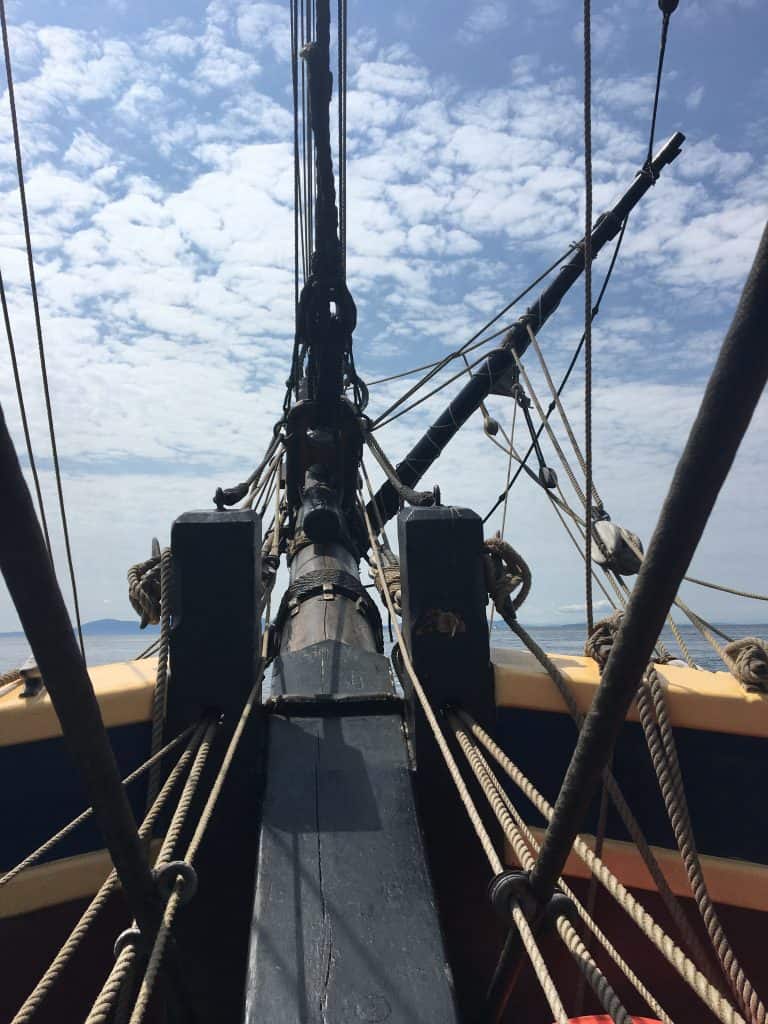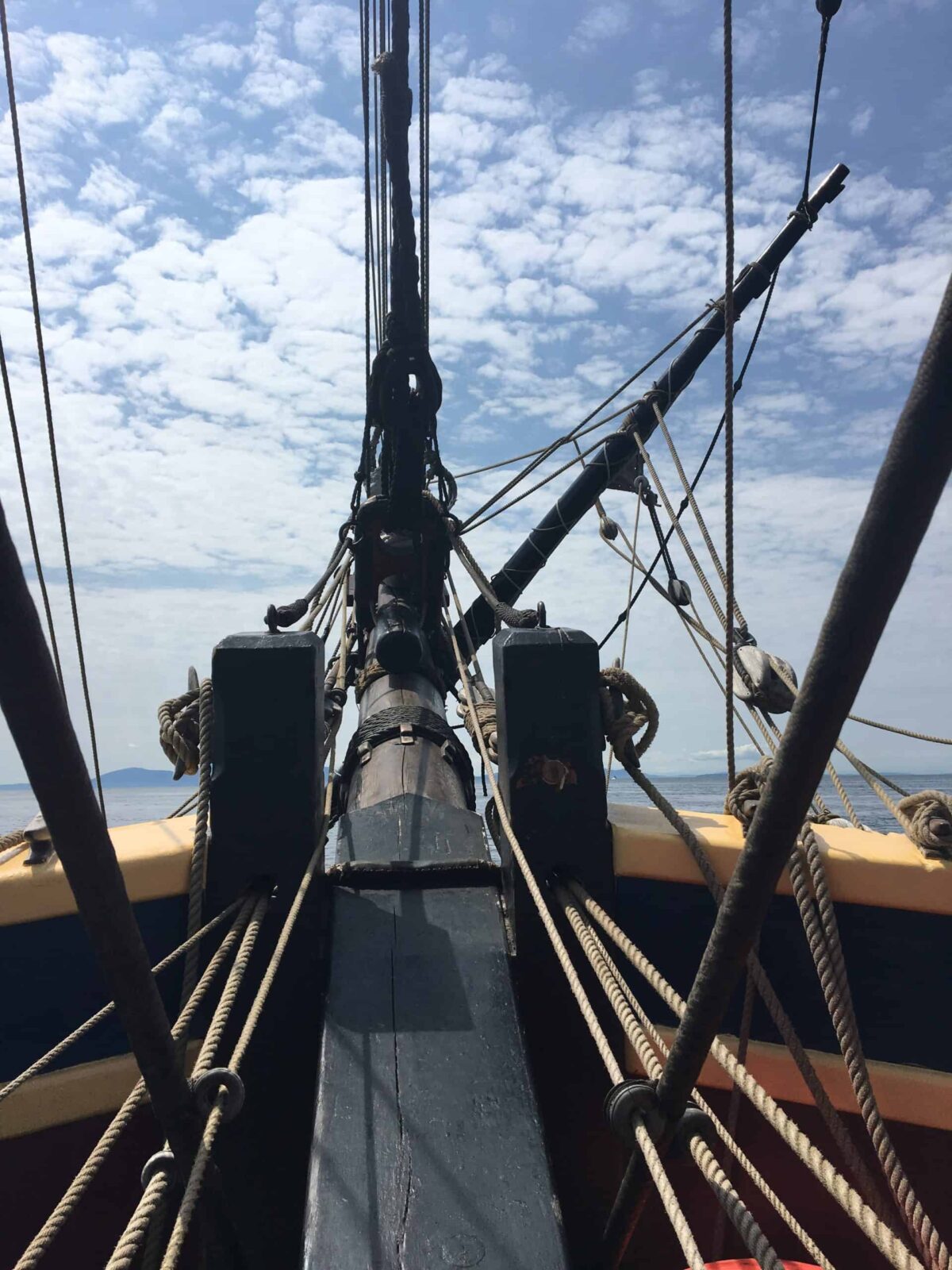By Kira Cordova

Aine mo ghrá,
We crossed into King Neptune’s territory yesterday. When we broke the line, he jumped out of the foc’sle and held my head under an old hardtack barrel that’d been catching rain on the foredeck [1].
Turned out it was Johnny from Bristol, wearing a piece of frayed line and a bit of old topsail. The second mate said he looked right, bonny-said he was handsome enough to introduce to the captain’s daughter [2]. When the mate said that, Johnny quit the ensemble faster than a rabbit that woke up in a foxhole, as the saying goes, but I’m now King Neptune’s man.
The main topsail yard broke off Kinsale when we were right broadsided by a squall Devil-sent from Newfoundland. They’re burning the pieces on deck to melt the tar for the new mainstay (it snapped right through in a screamer off the Canaries), and it smells of drying barley for poitín with turf from the hollow back in Cobh [3]. Made me think of me mam and daid.
Bill Cooper told me that we’ll be in the Doldrums soon– told me the water’s so still you can spit in it at the end of the dog watch and your spit’ll still be there the next day at breakfast [4]. Seems downright unnatural to me. It’s the only time the second mate’ll have whistling on board [5].
The man’s normally too downright stubborn to permit a gale, but Bill said we’ll be praying for a gale in a week. Scaring me out of my wits, he is.
Normally, he curses storms for getting in the way of making the barrels, but Johnny told me even thinking about two weeks of dead calm’ll do strange things to a man’s head.
I know ye won’t get this ‘till we’ve landed in America, but I’m sure you’ll have whistled us up a breeze and fair luck for the trip home to ye.
Mise le mórmheas,
Faolan Connelly
[1] Traditionally, when sailing vessels crossed the equator, older sailors hazed those who had never crossed into another hemisphere before by subjecting them to all sorts of shenanigans in the name of “King Neptune.”
[2] The “captain’s daughter” isn’t a person; it refers to corporal punishment (flogging).
[3] Poitín is Irish moonshine. Before fermenting, the barley was often dried on bog-turf fires (like modern scotch). Cobh is by Cork, in Southern Ireland.
[4] Traditionally, there were two watches—groups of sailors—who alternated working four hours on, four hours off. These four-hour shifts are also, confusingly, called watches. If all watches (in the second sense) were four hours, though, sailors would always work the same shifts because 24 is divisible by four (the same watch would always work 00:00 to 04:00, for instance). To change things up a little, there were two, two-hour dog watches (typically between 16:00 and 20:00—so the watch that worked 00:00 to 04:00 one day would work 04:00 to 08:00 the next).
[5] Tall ship sailors have a superstition that whistling calls the wind.

